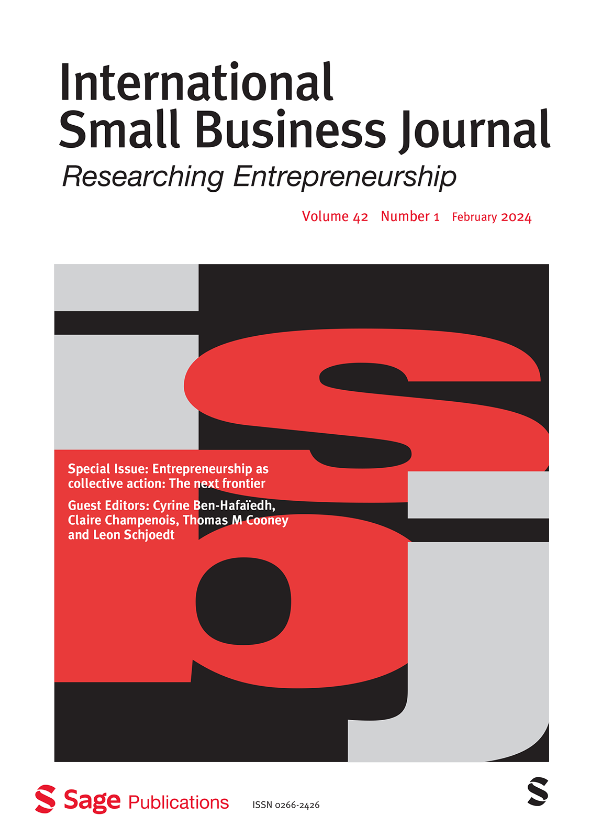人人为我,我为人人?
IF 3.9
2区 管理学
Q1 Business, Management and Accounting
International Small Business Journal-Researching Entrepreneurship
Pub Date : 2024-04-29
DOI:10.1177/02662426241243383
引用次数: 0
摘要
过去二十年来,天使投资已转变为一项集体事业,因为天使们越来越多地组织起来,形成了专业管理的天使团体。管理者通常被称为 "守门人",他们的一个关键角色是对该团体吸引到的投资机会进行初步筛选。我们从集体行动的角度,运用委托代理理论来研究这一活动,以了解把关人(代理人)的行为是否符合成员(委托人)的最佳利益。我们的研究考察了把关人的初步筛选方法。我们采用了两种不同的数据收集技术,从代表 19 个天使团体的 21 名把关人那里收集证据。首先是口头协议分析,即把关人在对潜在融资机会进行初步筛选时 "大声思考",结果表明,大多数把关人确实考虑到了小组成员的共同利益,尽管在许多情况下,这只占他们总体意见的一小部分。这可能表明存在道德风险的可能性;然而,访谈问题表明,把关人关注的是能增加成员利益的行动。这就要求把关人与小组成员建立牢固的社会关系,使他们的投资偏好与他们 "筛选 "的投资机会类型相匹配。本文章由计算机程序翻译,如有差异,请以英文原文为准。
‘All for one and one for all?’ Business angel groups as collective action
Angel investing has been transformed over the past two decades into a collective endeavour as angels have increasingly organised themselves into professionally-managed angel groups. A key role of the manager, typically termed the gatekeeper, is to undertake the initial screening of investment opportunities that the group attracts. We examine this activity through the lens of collective action using principal-agent theory to understand whether the gatekeeper (agent) acts in the best interests of the members (principal). Our study examines the gatekeeper’s approach to initial screening. Two different data gathering techniques were used to collect evidence from 21 gatekeepers representing 19 angel groups. First, verbal protocol analysis, which involved gatekeepers ‘thinking out loud’ as they undertook the initial screening of a potential funding opportunity, indicated that the majority did consider the shared interests of the members of the group, although in many cases this comprised only a small proportion of their overall comments. This could indicate the potential for moral hazard; however, the interview questions demonstrate that the gatekeepers focus on actions which increase the benefits for members. This requires that gatekeepers have a strong social relationship with group members to match their investment preferences with the types of investment opportunities that they ‘screen in’.
求助全文
通过发布文献求助,成功后即可免费获取论文全文。
去求助
来源期刊
CiteScore
10.80
自引率
8.50%
发文量
49
期刊介绍:
The International Small Business Journal (ISBJ) is a leading peer-reviewed journal renowned for publishing high-quality original research papers on small business and entrepreneurship. It prioritizes research-based studies that contribute to theory development, critical understanding, and policy formulation related to small firms.
ISBJ papers encompass theoretical, methodological, and empirical studies from various disciplines and perspectives, aiming for research excellence in the field. The journal provides a critical forum for world-class contributions analyzing entrepreneurship and entrepreneurial behavior.
This refereed journal is valuable to academics, policymakers, analysts, government and business officials, small business representative bodies, and support agencies seeking to gain insights into the sector, trade, business institutions, and related matters.

 求助内容:
求助内容: 应助结果提醒方式:
应助结果提醒方式:


